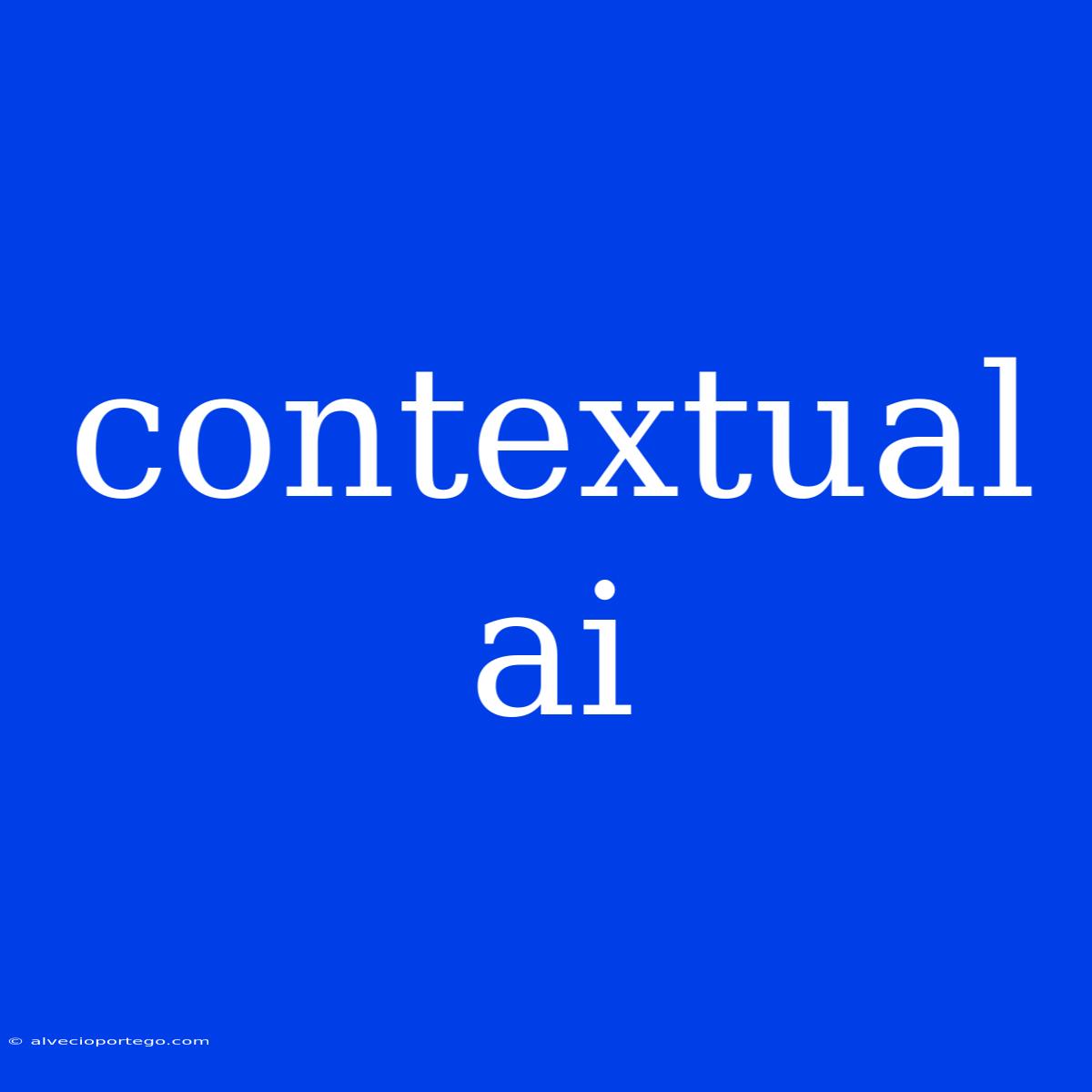Contextual AI: The Future of Intelligent Interactions
Contextual AI is rapidly emerging as a powerful force in the world of artificial intelligence. It goes beyond traditional AI systems by incorporating real-time context into decision-making processes, enabling machines to understand and respond to situations with greater nuance and accuracy.
What is Contextual AI?
Contextual AI, in essence, is about providing AI with the necessary information to understand the "why" behind a user's request or a situation's dynamics. This "context" can encompass a wide range of factors, including:
- User history: Previous interactions, preferences, and behaviors.
- Location: Physical location, time of day, and environment.
- Device: The type of device being used and its capabilities.
- Current situation: The immediate context surrounding the user's request.
- External data: News, weather, and other relevant information.
By integrating this contextual data, AI systems can deliver more personalized, relevant, and effective responses.
How Contextual AI Works:
Contextual AI typically relies on a combination of techniques:
- Natural Language Processing (NLP): Understanding and interpreting human language, including sentiment analysis and intent detection.
- Machine Learning (ML): Analyzing historical data to identify patterns and predict future outcomes.
- Knowledge Graphs: Representing relationships between entities and concepts to create a structured understanding of the world.
- Data Integration: Combining data from various sources to create a comprehensive picture of the context.
Benefits of Contextual AI:
- Enhanced Personalization: Delivering customized experiences based on individual preferences and needs.
- Improved User Experience: Creating seamless and intuitive interactions with technology.
- Increased Efficiency: Automating tasks and decision-making processes, reducing human effort.
- Greater Accuracy: Making more informed decisions based on a deeper understanding of the context.
- Enhanced Safety and Security: Identifying and mitigating risks by understanding the surrounding environment.
Examples of Contextual AI in Action:
- Personalized Recommendations: Netflix and Spotify use user history and preferences to recommend movies and songs.
- Smart Home Devices: Amazon Alexa and Google Assistant adapt to your location, time of day, and preferences.
- Chatbots: Conversational AI systems use context to provide more natural and helpful responses.
- Fraud Detection: Financial institutions utilize contextual AI to identify and prevent fraudulent transactions.
- Healthcare: AI-powered diagnostics use patient history and symptoms to provide personalized treatment recommendations.
The Future of Contextual AI:
Contextual AI is poised to revolutionize the way we interact with technology. As AI systems become increasingly sophisticated and data-driven, we can expect to see even more innovative applications that enhance our lives in countless ways.
Key Challenges:
- Data Privacy: Ensuring responsible data collection and usage is crucial.
- Algorithmic Bias: Avoiding bias in training data and algorithms is essential for fairness and equity.
- Explainability: Making AI decisions transparent and understandable is vital for building trust.
The future of AI lies in its ability to understand the nuances of human interactions. Contextual AI is a powerful tool that will play a critical role in shaping a future where technology seamlessly integrates into our lives, providing personalized and intelligent experiences.

